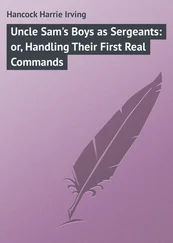Elbridge Brooks - Historic Boys - Their Endeavours, Their Achievements, and Their Times
Здесь есть возможность читать онлайн «Elbridge Brooks - Historic Boys - Their Endeavours, Their Achievements, and Their Times» — ознакомительный отрывок электронной книги совершенно бесплатно, а после прочтения отрывка купить полную версию. В некоторых случаях можно слушать аудио, скачать через торрент в формате fb2 и присутствует краткое содержание. ISBN: , Жанр: foreign_antique, foreign_prose, Биографии и Мемуары, на английском языке. Описание произведения, (предисловие) а так же отзывы посетителей доступны на портале библиотеки ЛибКат.
- Название:Historic Boys: Their Endeavours, Their Achievements, and Their Times
- Автор:
- Жанр:
- Год:неизвестен
- ISBN:http://www.gutenberg.org/ebooks/27157
- Рейтинг книги:3 / 5. Голосов: 1
-
Избранное:Добавить в избранное
- Отзывы:
-
Ваша оценка:
- 60
- 1
- 2
- 3
- 4
- 5
Historic Boys: Their Endeavours, Their Achievements, and Their Times: краткое содержание, описание и аннотация
Предлагаем к чтению аннотацию, описание, краткое содержание или предисловие (зависит от того, что написал сам автор книги «Historic Boys: Their Endeavours, Their Achievements, and Their Times»). Если вы не нашли необходимую информацию о книге — напишите в комментариях, мы постараемся отыскать её.
Historic Boys: Their Endeavours, Their Achievements, and Their Times — читать онлайн ознакомительный отрывок
Ниже представлен текст книги, разбитый по страницам. Система сохранения места последней прочитанной страницы, позволяет с удобством читать онлайн бесплатно книгу «Historic Boys: Their Endeavours, Their Achievements, and Their Times», без необходимости каждый раз заново искать на чём Вы остановились. Поставьте закладку, и сможете в любой момент перейти на страницу, на которой закончили чтение.
Интервал:
Закладка:
Elbridge Streeter Brooks
Historic Boys: Their Endeavours, Their Achievements, and Their Times
The world's historic boys and girls have been many. In every age and clime may be found notable examples of young people who, even before they reached manhood or womanhood, have – for good or evil – left their impress on their time.
From these the author of this volume has selected the careers of a dozen young fellows of different lands and epochs, who, even had they not lived out their "teens," could have rightly claimed a place in the world's annals as Historic Boys. They are such also as show that, from the earliest ages, manliness and self-reliance have ever been the chief groundwork of character, and that in this respect the boy of the nineteenth century in no way differs from his brother of the second or the ninth. To bravely front danger, difficulty, or death, if need be, for principle or right, is as commendable and as heroic in the boy brought up amid the surging and restless life of London to-day, as in the lads who trod the narrow streets of Jerusalem, or Rouen, of Florence, or old Rome centuries ago.
These stories of boy life, in the stirring days of old, have been based upon historic facts and prepared with a due regard to historic and chronologic accuracy. Nine of the twelve stories have already appeared in St. Nicholas magazine, but these have been revised and amplified for their present use, while the remaining three were specially prepared for this volume.
I
MARCUS OF ROME: THE BOY MAGISTRATE
A perfect autumn day. Above, the clear sky of Italy; below, a grassy plain, sloping gently down from the brown cliffs and ruined ramparts of old Veii – the city of the ancient Tuscan kings. In the background, under the shade of the oaks, a dozen waiting attendants; and here, in the open space before us, three trim and sturdy Roman youths, all flushed with the exercise of a royal game of ball. Come, boys and girls of to-day, go back with me seventeen and a half centuries, and join the dozen lookers-on as they follow this three-cornered game of ball. They call it the trigon . It is a favorite ball-game with the Roman youth, in which the three players, standing as if on a right-angled triangle, pitch and catch the ball, or pila , at long distances and with the left hand only. It is not so easy as you may think. Try it some time and see for yourself.
"This way – toss it this way, Aufidius; our good Sejus will need more lessons from old Trimalchio, the gladiator, ere he outranks us at trigon ."
And with a quick but guarded dash of the left hand the speaker caught the ball as it came spinning toward him, and with as vigorous a "left-hander" sent it flying across to young Sejus.
"Faith, my Marcus," said Sejus, as he caught the ball with difficulty, "the gallop from Lorium has made me somewhat stiff of joint, and I pitch and catch but poorly. Keep the pila flying, and I may grow more elastic, though just now I feel much like our last text from Epictetus, that the good Rusticus gave us yesterday – 'a little soul bearing about a corpse.'"
"What then! Art as stiff as that, old Sejus?" gayly shouted Aufidius. "Ho! brace thee up, man," he cried, as he sent the ball whirling across to Marcus; "brace thee up, and use rather the words of our wise young Stoic here – 'Be like the promontory against which the waves continually break, but it stands firm and tames the fury of the waters around it.'"
"'T is well applied, Aufidius. But – said I all that?" Marcus inquired.
"Ay, so didst thou, my Marcus. 'T is all down on my tablets." And with merry talk the game went on.
But soon old Ballio, the ordinarius , or upper servant, left the oak shade and said to Marcus: "Come, my master; the water-glass shows that we must soon ride on if we mean to reach Rome by dinner-time."
So the game was broken off, and, after a few nibbles at the cakes and sweetmeats which one of the slaves carried to "stay the stomachs" of the travellers, the call "To horse!" was given, and the party moved on toward the city. The spirits of the lads ran high; and though the one called Marcus had a sedate and quiet look, he was roused into healthy and hearty boyishness as, over the Etruscan plains, they galloped on to Rome.
They had been riding, perhaps, a short half hour, when they saw, coming down a cross-road that entered the highway just beyond them, a large flock of sheep returning from their summer pasturage on the hills, in charge of three shepherds and their families. The game and the gallop had made the boys ripe for mischief; for, though close and patient students, they were in their hours of sport as ready for a frolic as are any schoolboys of to-day.
The shepherds, seeing a party of hard riders coming toward them, looked at their sheep anxiously and eyed the strangers suspiciously. For sheep-stealing was of common occurrence in those days, and, when changing pastures, the shepherds were kept constantly on the watch.
The quick eye of Aufidius marked the suspicions of the shepherds.
"Why, Marcus," he exclaimed, "yonder fellows surely take us for highwaymen."
"Highwaymen, indeed!" said Sejus, indignantly. "Dost think the knaves could mistake the noble Marcus Verus for a cowardly sheep-stealer."
"And why not," said Marcus, laughingly. "Man looks at man but as his reason bids him. If shepherds look but for sheep-stealers, to them, at first, all men are sheep-stealers. Come," he added, gayly, "let us not disappoint them. What did our teacher Rusticus tell us but yesterday: 'That which is a hinderance is made a furtherance to an act, and that which is an obstacle on the road helps us on the road.' Shall we not put his text to the test? Behold our obstacle on the road! Let us ride down the sheep!"
The spirit of mischief is contagious. Down the highway dashed the whole party, following the lead of Marcus and his cry of "Forward, friends!" while the now terrified shepherds turned their huddling sheep around, and with many cries and much belaboring struggled back to the cross-road to escape the pretended robbers. But the swift horses soon overtook the slow-footed shepherds, and the laughing riders, with uplifted weapons and shouts of seeming victory, were quickly at the heels of the flock. Then came a change. The shepherds, finding that they could not outrun their pursuers, stopped, wheeled around, and stood on the defensive, laying valiantly about them with crook and staff.
"'Go on and increase in valor, O boy! this is the path to immortality,'" shouted the nimble Aufidius, and with this quotation from Virgil, he swooped down and caught up a struggling lamb.
"What says your philosophy now, O Marcus?" said Sejus as, rather ruefully, he rubbed an aching shin, sore from the ringing thwack of a shepherd's crook.
Marcus dodged a similar blow and replied "That nothing happens to any man, O Sejus, which he is not fitted by nature to bear. But I have had enough. Let us go our way in peace."
And turning from the fray, the whole party rode rather ingloriously from the field of defeat, while the victors vowed a lamb to Pales, the special patroness of shepherds, for their deliverance from "so blood-thirsty" a band of robbers.
So, flushed and merry over their adventure, the three lads rode on to Rome; but, ere they came in sight of the yellow Tiber, a fleet Numidian slave came running toward them, straight and swift as an arrow, right in the middle of the highway. Marcus recognized him as one of the runners of his uncle, the proconsul Titus Antoninus, and wondered as to his mission. The Numidian stopped short at sight of the party, and, saluting Marcus, handed him a small scroll. The boy unrolled it, and at once his face became grave.
Читать дальшеИнтервал:
Закладка:
Похожие книги на «Historic Boys: Their Endeavours, Their Achievements, and Their Times»
Представляем Вашему вниманию похожие книги на «Historic Boys: Their Endeavours, Their Achievements, and Their Times» списком для выбора. Мы отобрали схожую по названию и смыслу литературу в надежде предоставить читателям больше вариантов отыскать новые, интересные, ещё непрочитанные произведения.
Обсуждение, отзывы о книге «Historic Boys: Their Endeavours, Their Achievements, and Their Times» и просто собственные мнения читателей. Оставьте ваши комментарии, напишите, что Вы думаете о произведении, его смысле или главных героях. Укажите что конкретно понравилось, а что нет, и почему Вы так считаете.












